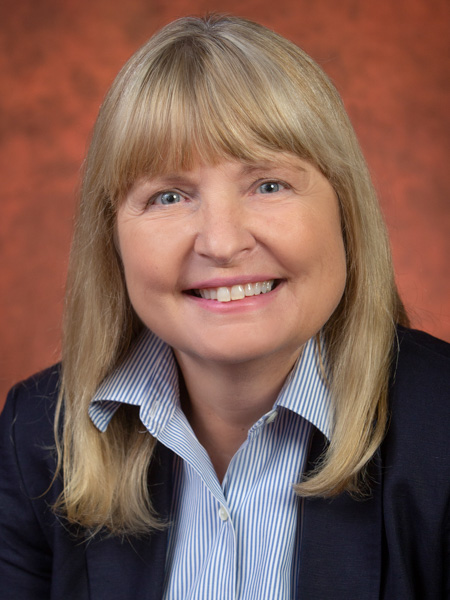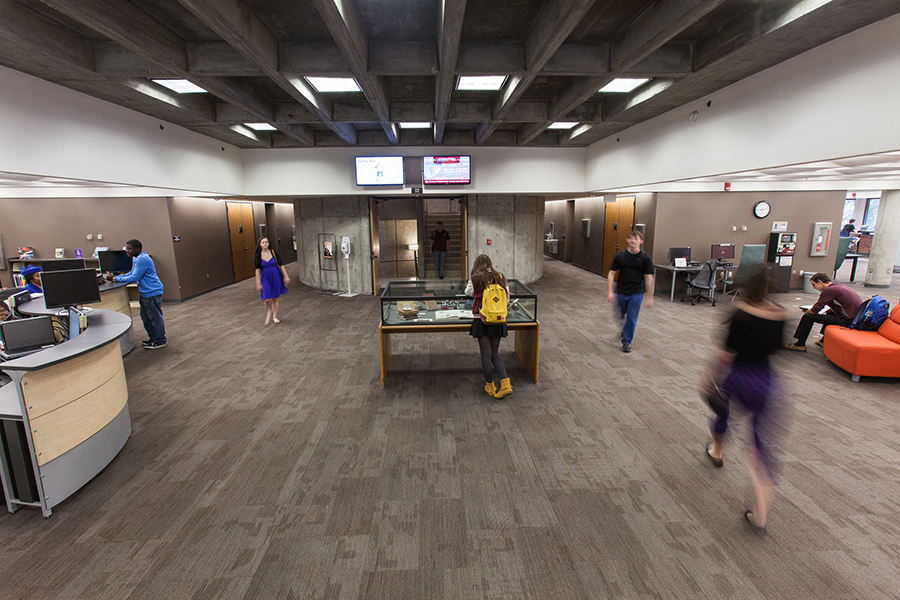
New research designed to help libraries better serve people with autism is making Florida State University a national leader in developing ways to connect with the growing population of students on the autism spectrum.
The autism rate — estimated at one in 59 children, or 1.7 percent, according to the latest statistics from the U.S. Centers for Disease Control and Prevention — has been rising over the past two decades, especially among boys. Autism spectrum disorder (ASD), now the fastest growing disability in the United States, has climbed to its highest level since the government started tracking it in 2000.
With nearly 42,000 students at FSU, a 1.7 percent rate translates to more than 700 on the autism spectrum, which can include a range of language and social impairments or repetitive behaviors.
Professors Nancy Everhart and Juliann Woods, both international scholars at FSU’s College of Communication and Information, saw the need to do more to help these students succeed. They teamed up on a study called Project A+ with a mission to develop ideas that reduce library anxiety and boost learning among students with autism.
“Our research produced a manual that guides libraries on how to make their facilities more autism-friendly, but the strategies really provide clearer directions that benefit all students,” Everhart said. “Previously, this kind of research focused on young children and not on older students, particularly those going to college. That meant a lot of students with autism became invisible once they arrived on campus.”
Project A+ places more focus on these students. The study’s 130-plus page manual provides specific techniques, objectives, checklists and videos for librarians and staff. It is a comprehensive resource, including chapters on how ASD influences life on college campuses, the importance of organizing a library environment to support students with autism and how technology can enhance their social and vocational independence.
The Florida State University Libraries have begun to implement ideas from the Project A+ research. They have increased the use of signs and maps to clarify directions and instructions; they have made a special effort to carry more fiction books featuring characters with autism; and they support efforts to employ a diverse library staff, including those on the autism spectrum.

Michael Meth, associate dean of Research and Learning Services at FSU Libraries, said the library system is a proud partner with Project A+ researchers.
“This collaboration has given us much better insights about what we do well, where we have opportunities to improve and how to structure our spaces and services,” he said. “Libraries should be inviting, inclusive and hospitable places for all of our scholars, and the Project A+ recommendations will help improve FSU Libraries for all patrons.”
Everhart said the research recommendations reflect an evolving age when society is moving toward a greater appreciation and acceptance of each person’s uniqueness.
“We live in a time with more focus on diversity, whether it’s neurodiversity or gender equality — all are factors that shape the way librarians do their work today,” Everhart said. “Librarians, too, need a broader view of how to best serve their customers.”
That perspective, and the ideas flowing from it, is in high demand. Everhart and Woods have worked with several universities to incorporate new library strategies, including the University of West Florida. They have offered Project A+ training at the University of Manitoba and are booked to do the same at Montana State University next spring. More schools are taking advantage of the project’s online resources at Florida State.
A future with more autism-friendly libraries is fast arriving, and Everhart and Woods are helping lead the way.
“We are getting known for this work after doing the research for the past five years or so,” Everhart said. “Interest in this issue is increasing, and the next phase of our research will look at employment in libraries. We have terrific resources here at Florida State and the university has been very supportive.”
For more information about Project A+ and to view its resources, go to: https://aplus.cci.fsu.edu/




